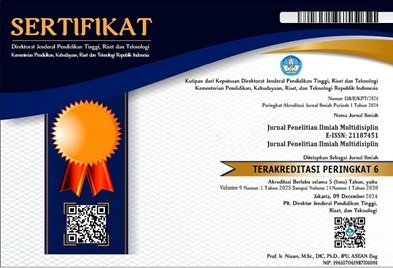STRATEGI REKRUTMEN BERBASIS KOMPETENSI UNTUK MENINGKATKAN KUALITAS PENDIDIK DAN TENAGA KEPENDIDIKAN
Kata Kunci:
Rekrutmen Berbasis Kompetensi, Kualitas Pendidik, Tenaga Kependidikan, Strategi RekrutmenAbstrak
Penelitian ini bertujuan untuk menganalisis efektivitas strategi rekrutmen berbasis kompetensi dalam meningkatkan kualitas pendidik dan tenaga kependidikan di lembaga pendidikan. Rekrutmen berbasis kompetensi merupakan pendekatan yang menekankan pada kesesuaian antara kompetensi individu dan kebutuhan kompetensi posisi kerja yang ada. Dengan pendekatan ini, diharapkan proses rekrutmen mampu menghasilkan tenaga pendidik yang memiliki kemampuan, keterampilan, dan karakter yang sesuai dengan standar pendidikan yang diinginkan. Metode yang digunakan dalam penelitian ini adalah kualitatif-deskriptif dengan pendekatan studi kasus pada beberapa sekolah yang menerapkan strategi rekrutmen berbasis kompetensi. Hasil penelitian menunjukkan bahwa sekolah yang menerapkan rekrutmen berbasis kompetensi cenderung memiliki tenaga pendidik dan kependidikan yang lebih sesuai dengan kebutuhan institusi, memiliki kinerja yang lebih baik, dan mampu beradaptasi terhadap tuntutan perubahan di dunia pendidikan.
This study aims to analyze the effectiveness of competency-based recruitment strategies in improving the quality of educators and education personnel in educational institutions. Competency-based recruitment is an approach that emphasizes the suitability between individual competencies and the competency needs of existing job positions. With this approach, it is expected that the recruitment process will be able to produce educators who have the abilities, skills, and characters that are in accordance with the desired educational standards. The method used in this study is qualitative-descriptive with a case study approach in several schools that implement competency-based recruitment strategies. The results of the study indicate that schools that implement competency-based recruitment tend to have educators and education personnel who are more in line with institutional needs, have better performance, and are able to adapt to the demands of change in the world of education.





